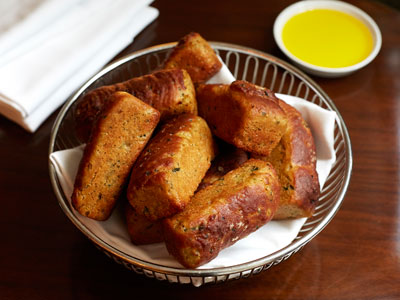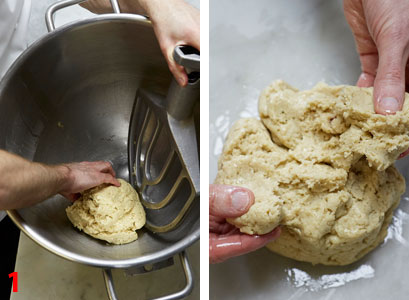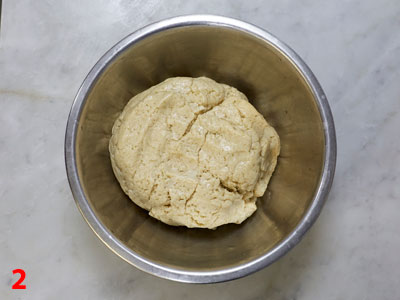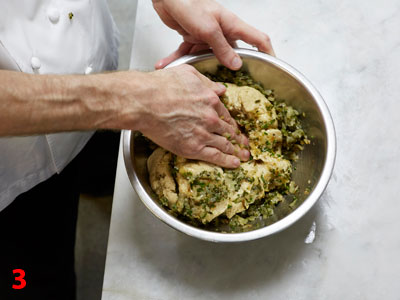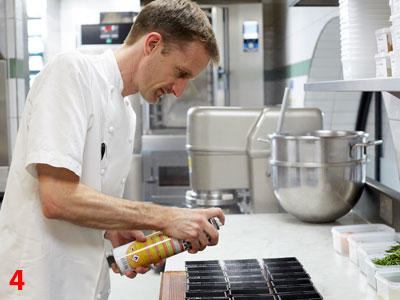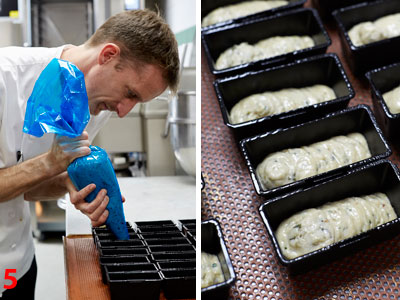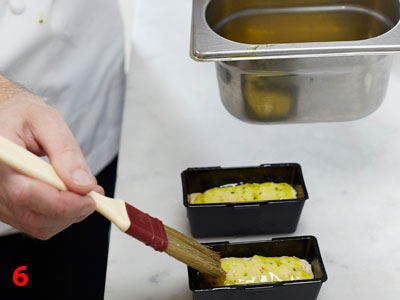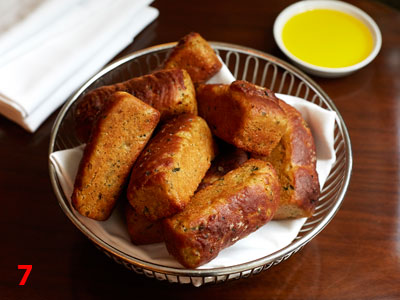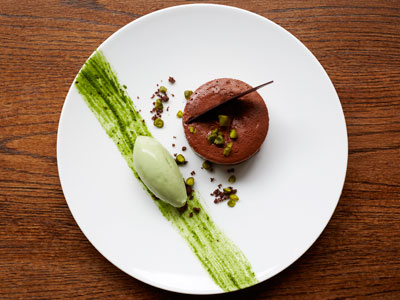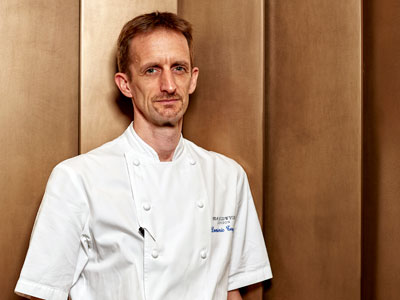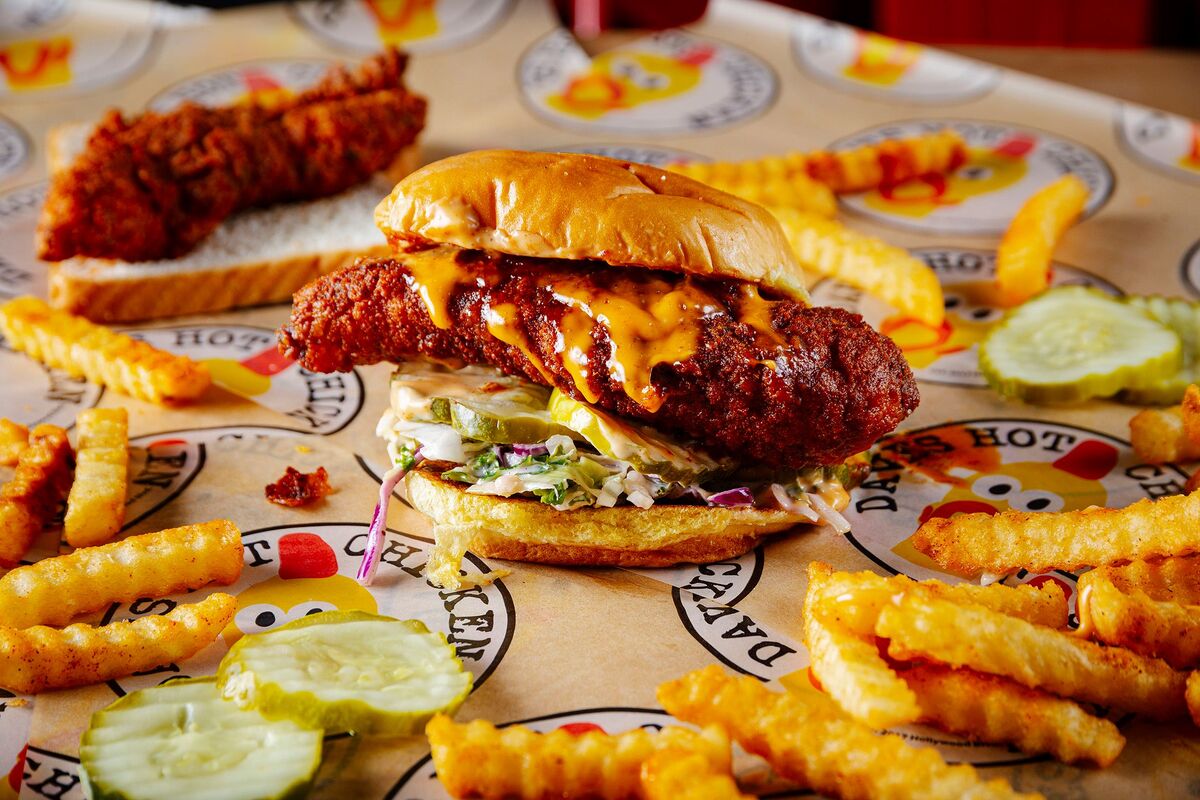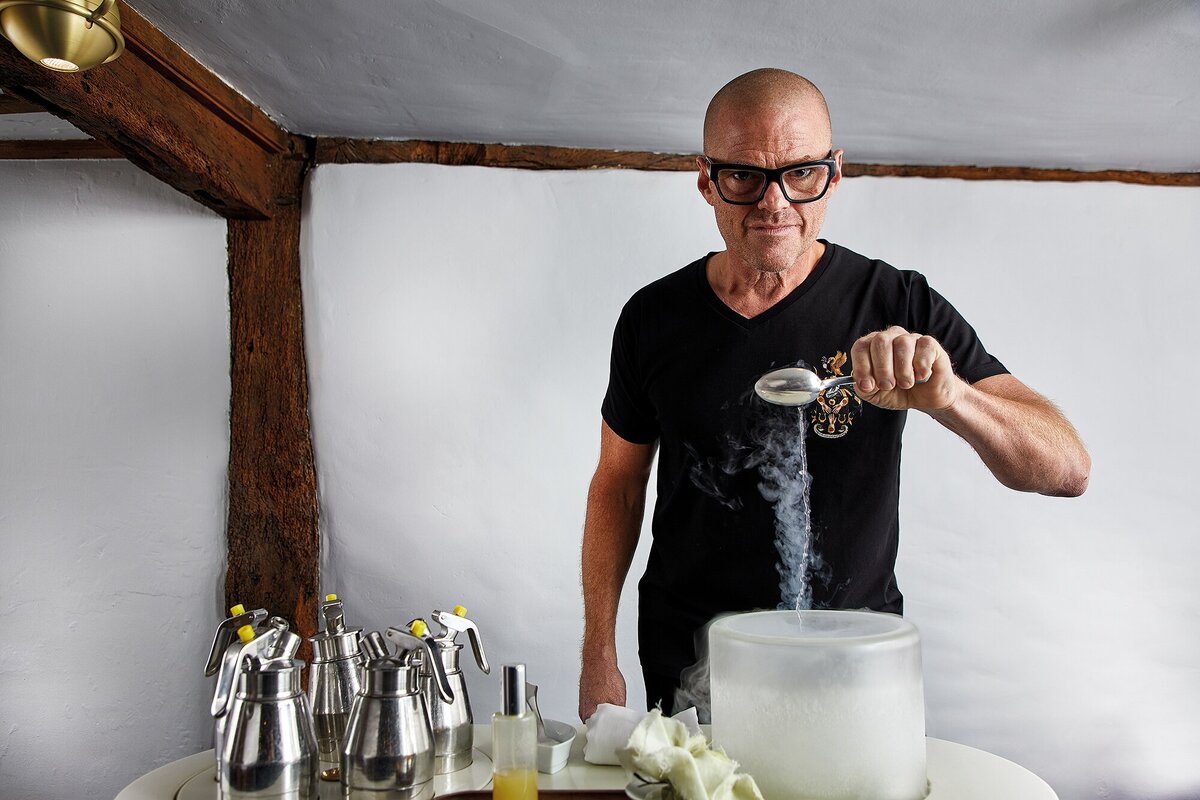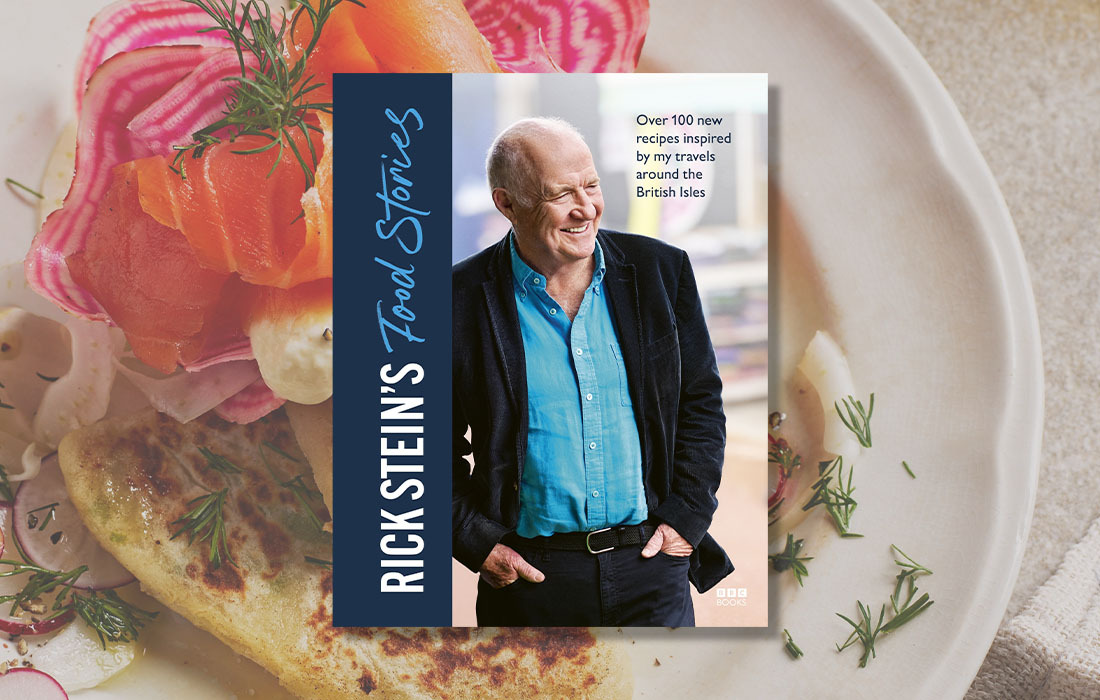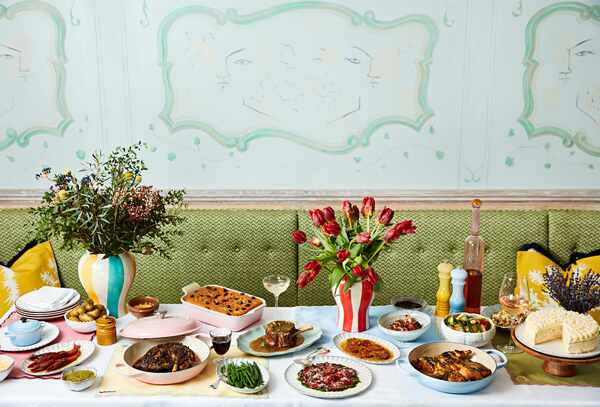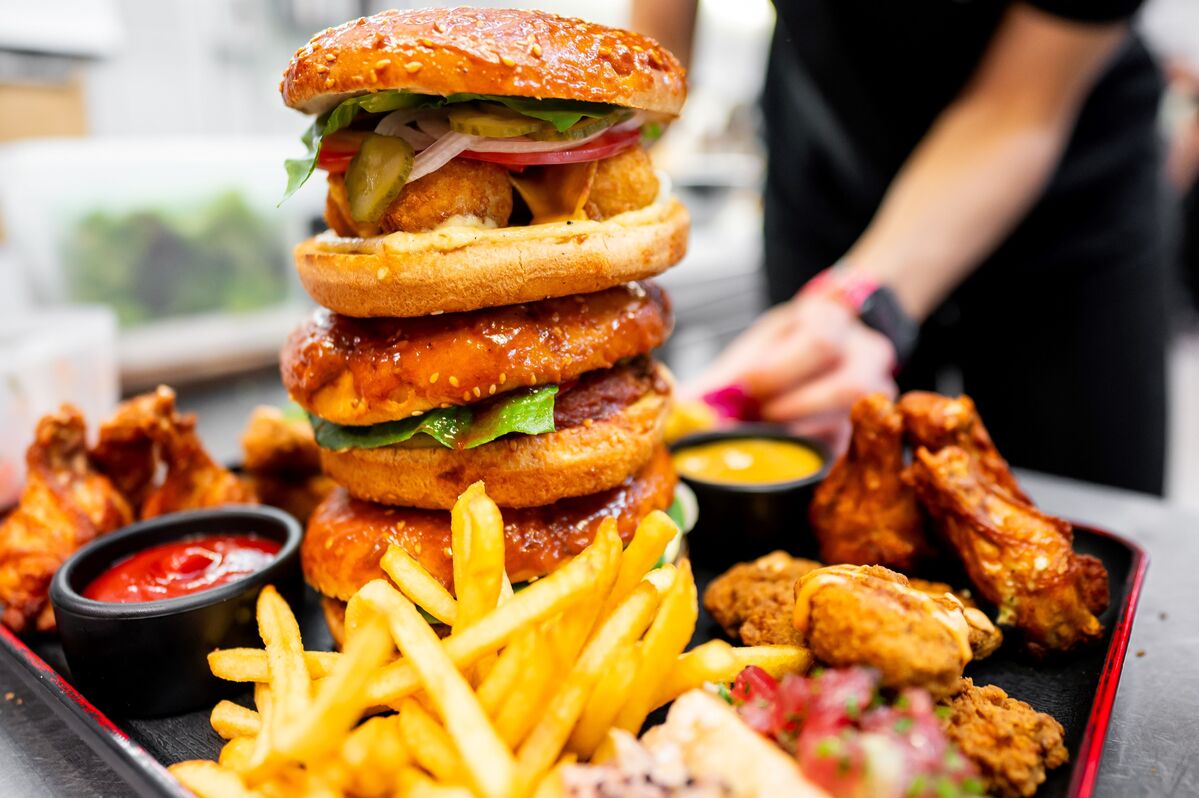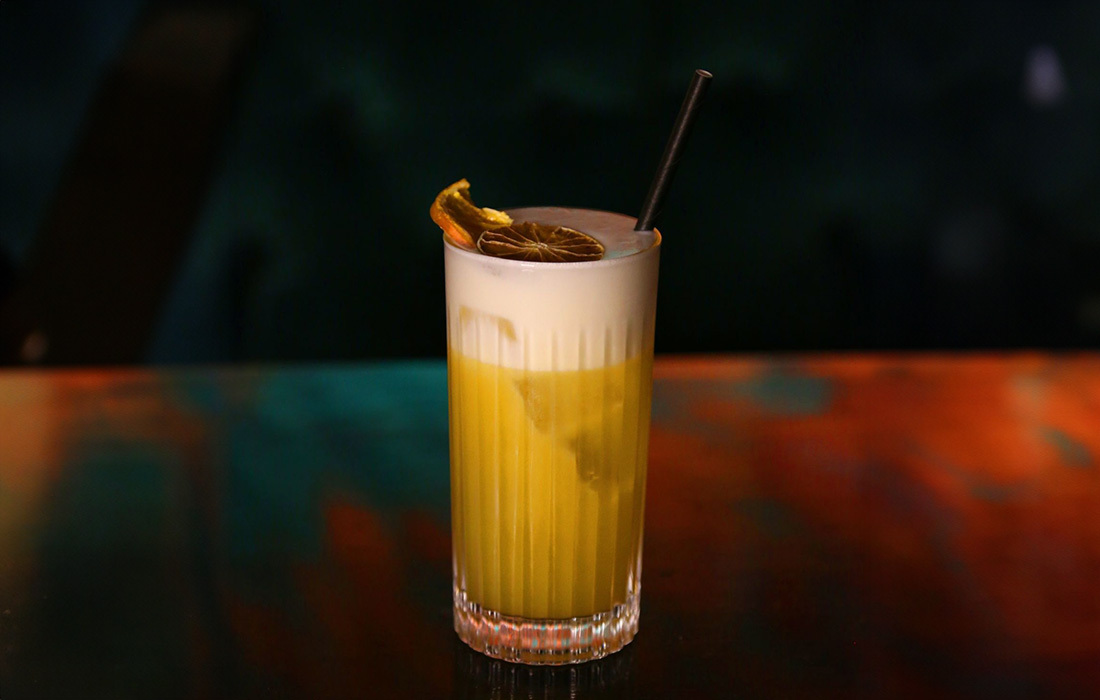Chef masterclass: Free-from focaccia
Just how many people are coeliac or wheat intolerant is unclear. Statistics for the EU fluctuate between 5%-10%, as figures hinge on whether to count undiagnosed sufferers.
The illness is caused by the body's inability to digest the gluten (protein) in wheat flour. The source of the intolerance isn't yet understood.
The quality of gluten-free bread varies. Pret A Manger has a gluten-free flatbread wrap; Gwyneth Paltrow (in her Goop blog) swears by a version with almond and coconut flour.
Chefs face a dilemma. They want to offer customers a gluten-free option, not least because it is fashionable, but they don't want it to fall below the standard of their regular yeasted breads and rolls. The difficulty is more about texture than taste. Alternatives, even when well-risen, are often cake-like.
At One Aldwych, executive chef Dominic Teague has formulated a recipe that has the characteristics of focaccia. It's savoury, rich and has a crumb similar to olive oil-enriched Italian bread. He bakes them as individual mini-loaves and offers them instead of rolls in the hotel's Indigo restaurant.
Planning The kitchen makes a separate batch of the focaccia for each service.
â- Mix the basic dough
â- Give it a short prove then mix in the onion and samphire
â- Prove again
â- Finish with oil and salt and bake
Cost The cost per batch of 20-22 pieces is £2. Waiters typically serve two focaccias per person.
Equipment
â- 20-25 Matfer Bourgeat Exoglass bread moulds, measuring 90mm x 45mm.
â- Bread prover
â- Oven with steam injection.
Onion and samphire focaccia
Makes 20 loaves
30g gluten-free yeast
200ml rice milk
350g Doveâs gluten-free plain white flour
200g buckwheat flour
5g xanthan gum
20g salt
10g sugar
2 eggs
200g olive oil
5g bicarbonate of soda
10ml wine vinegar
300g onion-samphire sofrito [see panel]
100ml (approximate) water
Maldon salt and rapeseed oil for finishing
Method Dissolve the yeast in tepid (blood temperature) rice milk. Combine the flours, xanthan gum, salt and sugar in a mixing bowl. Add the dissolved yeast and rice milk, eggs and olive oil.
Mix the bicarbonate of soda and vinegar and add it to the other ingredients. Using a beater attachment, blend the mixture to form a softish dough (1). Cover and leave in a warm place for 30 minutes (2).
Work the onion mixture into the dough. The dough will be on the sticky side. Mix in just enough water to make a pipeable batter (3).
Spray 20 Exoglass loaf moulds with oil to prevent sticking (4). Pipe enough of the dough into each mould to half fill it (5). Put the moulds on a baking sheet and prove for 30 minutes at 35°C at 70% humidity, or until the dough starts rising in the moulds.
Brush the tops of the focaccia with rapeseed oil and sprinkle with Maldon salt (6). Place in a preheated 220°C convection oven. (If it has a steaming facility, steam for 20 seconds.)
Bake for eight or nine minutes or until golden. The little loaves will have almost risen to the tops of the moulds. While still hot, brush with rapeseed oil again and turn out (7).
Tips
â- Consistency can be a problem when starting out with gluten-free baking, because the ingredients may not be consistent and
changes in the temperature or type of oven can affect a recipe.
â- According to Teague, his Indigo focaccia doesnât bake so well as a large loaf.
â- Adding the water at the end allows the baker to control the texture of the dough. If itâs too cold, proving will take longer.
â- Donât season the onion mix because the samphire is already salty enough.
Scaling-up batch sizes
Indigo started making small batches of 20 pieces, but has progressively scaled up quantities in line with increased demand.
For 80-90 small loaves
120g gluten-free yeast
800ml rice milk
1.4kg Doveâs gluten-free plain white bread flour
800g buckwheat flour
20g xanthan gum
80g salt
40g sugar
8 eggs
800g olive oil
20g bicarbonate of soda
40ml wine vinegar
1,200g onion-samphire sofrito [see panel]
400ml (approximate) water
Maldon salt and rapeseed oil for finishing
Gluten-free flours
The cost of gluten-free flour starts at about £1.50 per kg. Doveâs Farm gluten-free bread flour is a reliable standby for most recipes, and the supplier also has a range of other suitable flours:
â- Buckwheat flour
â- Rice flour (white and brown)
â- Almond flour
â- Coconut flour
â- Potato flour
â- Quinoa flour
â- Soya flour
â- Tapioca flour
Gluten-free bread
Gluten is a composite of two proteins (gliadin and glutenin) found in wheat and spelt, but also in rye and barley. It is an
insoluble protein and what makes bread elastic and chewy. Apart from allowing dough to stretch, it also helps trap the gas bubbles that result from sugars fermenting in yeast-raised baked goods.
Wheat-free recipes attempting to imitate bread have to rely on a mixture of ingredients: flour blends, starches, gums,
eggs and raising agents, such as baking powder, together with yeast that isnât a by-product of the brewing industry.
The use of these raising agents can be detected in the texture of the rolls or loaves. The amounts of spring and
elasticity in the crumb will be less, and their crusts may lack brittleness or crunch.
Onion and samphire sofrito
Finely dice 1kg of onion and sweat in 80ml olive oil. When it starts to colour, add 25g chopped rosemary and diced
roasted garlic to taste, then 375g marsh samphire, blanched and chopped. Cook out for two to three minutes and then cool.
Â
Chocolate mousse and pistachio ice-cream
The mousse is very similar to any classic recipe, except that coconut butter replaces the dairy equivalent.
The pistachio ice-cream, using almond milk, is made in a Pacojet and has the same texture, mouth feel and taste as one made conventionally.
Its calorie count will, of course, be lower than a recipe made with cream and crème anglaise.
Makes 12 mousses
For the chocolate mousse 325g 70% Valrhona chocolate
30g coconut butter
6 egg yolks
Pinch salt
Pinch Nescafé
50ml water
100g sugar
7 egg whites
Melt the chocolate and the coconut butter together. Over a bain-marie, make a sabayon with the egg yolk, salt and Nescafé, disoved in 50ml water, whisking until itâs light and fluffy.
Make a French meringue with the sugar and egg whites by whisking until they form stiff peaks. Fold the sabayon into the chocolate and then the meringue, pipe into rings and set in the fridge.
For the pistachio ice-cream
200g almond milk
1g Maldon salt
30g fondant
10g glucose
5g sugar
2g stab 2000
20g pistachio paste
30g roasted pistachios
Heat the milk, salt, fondant and glucose to 40°C. Mix together the sugar and stab 2000, whisk into the milk and bring to the boil, then whisk in the pistachio paste. Add the roast pistachios and cool over an ice bain marie. Pass through a sieve and freeze in Paco canisters.
Dominic Teague
Last year Dominic Teague oversaw the complete refurbishment of One Aldwychâs Indigo kitchen, and it was then that he decided to turn the Indigo Restaurant on the hotelâs mezzanine floor into a gluten- and dairy-free zone.
The shift, unique to London, happened as a response to customer demand: âMore and more people were asking for it and there was a gap in the market,â he says.
He had prepared gluten-free and dairy-free dishes for years, as most high-end restaurants offer these dishes on request, but the switch to an entirely gluten-free and dairy-free menu was quite smooth: âOur restaurant was about serving great meat, fish, fruit and vegetables, cooked well. That wasnât going to change.â
Working without conventional flour has had surprising benefits. The beer batter (made with rice flour, buckwheat and cornflour) for his fish and chips matches any conventional recipe.
Finding a replacement for bread was, he admits, more of a challenge: âWhen we launched, I didnât want people to think that we were doing something just because it was a trend, so the focaccia had to stand up in its own right.â
Diners treat it as a nice touch in a good restaurant, rather than something that competes with chunks of sourdough or a crisp roll. The bottom line, he insists, is about meeting expectations: âWeâre a five-star hotel and we want to do the best by our guests.â



